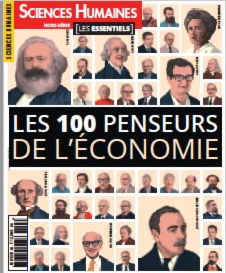
Books and Reviews

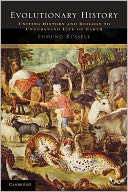
Evolutionary History: Uniting History and Biology to Understand Life on Earth
We will provide our own review of the book in the future. In the meantime you can read Scrantons' review in Technology and Culture.
Richard Nelson on Sidney Winter
On October 16, 2003, Richard Nelson gave a speech at conference honoring the work of Sidney Winter. The conference was held at the Wharton School of the University of Pennsylvania. On the 30th anniversary of Nelson and Winter (1982), Etss.net is pleased to publish this speech for the first time. In it, Richard Nelson sheds light on how Nelson and Winter's landmark 1982 book came about. A few year earlier Sid Winter already provided some insights about their collaboration. He reminisced about "The Evolution of Dick Nelson" at a conference held at Columbia.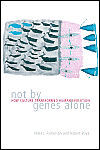
Not Genes Alone: How Culture Transformed Human Evolution
Richard Nelson reviews (April 27, 2005) Richerson and Boyd's Not by Genes Alone, a new book on the evolution of culture. The authors accepted our invitation to respond to Nelson's review. Registered users etss.net can post their own comments on the book at the end of the review. Table of Contents. Read an excerpt from the introductory chapter here.
Knowledge and Competitive Advantage: The Coevolution of Firms, Technology, and National Institutions
Johann Peter Murmann compares the development of the synthetic dye industry in Great Britain, Germany, and the United States through the lenses of evolutionary theory. As Murmann demonstrates, a complex coevolutionary process linking firms, technology, and national institutions resulted in very different degrees of industrial success among the dye firms in the three countries. The book won Joseph Schumpter Prize and the Stanley Reiter in 2004. Download Introductory Chapter- Lenway and Murtha 's Review
- Graham's Review
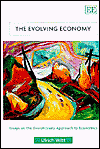
The Evolving Economy
This volume contains 20 of Ulrich Witt's essays on evolutionary economics written between 1985 and 2001. Some of the issues he addresses include the biological foundations of economic behavior, the dissemination of new industrial technologies under network externalities, and the application of the theory of self-organization to the study of change in the marketplace.
Debate on Larmarckism in Social Evolution
In June 2004, Geoffrey Hodgson and Thorbjorn Knudsen circulated a paper under a title of The Limits of Larmarckism Revisited. What followed was a very interesting debate provoked by a response from Richard Nelson. Geoffrey Hodgson, Thorbjorn Knudsen, John van Wyhe, Marion Blute, John Gowdy, and David Hull all participated in this high quality debate that took place within a few days. Anyone interested in evolutionary thought in the social sciences will profit from reading this exchange. Comments on the debate are welcome. (The Hodgson and Knudsen paper is now published in the Journal of Evolutionary Economics. Download here.)
Dawinizing Culture: The Status of Memetics as a Science
Howard E. Aldrich reviews (January 21, 2002) for etss.net a new book about the meme concept edited by Robert Aunger. Aunger brought together both supporters and opponents of meme theory (Susan Blackmore, Maurice Bloch, Robert Boyd, Rosaria Conte, David L Hull, Adam Kuper, Kevin Leland, John Odling-Smee, Henry Plotkin, Peter J. Richerson, Dan Sperber) to debate the validity of a concept regarded by many as scientifically suspect. Click here for a table of contents. Share your thoughts on the book or the review by posting a message at the end of the reviews.
Technological Innovation as an Evolutionary Process
For our third original review (published January 9, 2001), Keith Pavitt has taken on the challenging task of evaluating this important new edited book for etss.net. John Ziman (editor) brought together leading scholars on technological change (John Ziman, Eva Jablonka, Joel Mokyr, Richard Nelson, Alan Macfarlane, Sarah Harrison, Gerry Martin, David Turnbull, Paul A. David, W. Bernard Carlson, David Perkins, Walter G. Vincenti, Joan Solomon, Geoffrey Miller, Edward W. Constant II, Rikard Stankiewicz, James Fleck, Gerard Fairclough, Janet Davies Burns) to appraise the usefulness of evolutionary ideas in explaining technical change. Brian Loasby and Stanley Metcalfe have written longer review essays. You can download the first chapter of the book as a pdf file here. Share your thoughts on the book or the review by posting a message at the end of the reviews.
Social Transformations. A General Theory of Historical Development. Expanded Edition
We continue today (May 9, 2000) our book review feature with Charles Tilly's reviews Stephen Sanderson's "Social Transformations. A General Theory of Historical Development. Expanded Edition." Stephen Sanderson writes a response clarifying his position. Share your thoughts on the book or the review by posting a message at the end of the review. This review will be published in paper form in the Canadian Journal of History.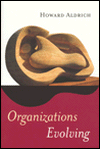
Organizations Evolving
We are kicking off our book review feature today (February 8, 2000) with Howard Aldrich's new oeuvre "Organizations Evolving." (Click on title for table of contents) Hayagreeva Rao and Arthur Stinchcombe have read the book over the holidays for us and we are very pleased to publish their reviews on etss.net. As will be customary for all our reviews, we invited Howard Aldrich to respond to the two evaluations of his book. You can share your views and participate in a discussion of the book by posting a message at the end of the review.
An Evolutionary Theory of Economic Change
This is a classic in evolutionary economics. Nelson and Winter "argue that the emphasis in theorizing about ('modelling')competition should be on the analysis of evolutionary and revolutionary change (the 'perennial gale of creative destruction,' as Schumpeter put it), ratherthan on the conditions for general or partial equilibrium; that motivation should be Simon's 'satisficing' as 'bounded rationality' within an enormously complex world, rather than the maxima/minima calculation emphasized by orthodox micro theory of the past 40 years." (Choice) Bibliography.
Science as a Process
Johann Peter Murmann: Thomas Kuhn's "The Structure of Scientific Revolutions" is the most widely read and cited book in the philosophy and sociology of science. If you want an philosophical foundation for an evolutionary view, this is the book you should read and not Kuhn. Hull delivers not only a philosophical foundation for evolutionary theories in the social sciences, but he also provides a wonderful case study of how a school of thought in the world of biological taxonomy won the competition among alternative approaches.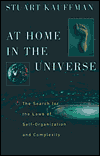
At Home in the Universe
Synopsis Kaufman, a MacArthur Fellow and visionary pioneer of the science of complexity, offers a brilliant account of a new scientifc revolution that rivals Darwin's theory of importance. The book illuminates this new paradigm as it weaves together the excitement of discovery and a fertile mix of ideas. Provides stunning insights into the origin of life, the development of embryos and more. This book examines the question: "why is there order in nature? . . . Mr Kauffman argues {that} much order in the natural world arises spontaneously." (Economist) Index.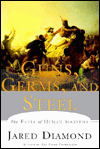
Guns, Germs and Steel: The Fates of Human Societies
In this "artful, informative, and delightful" (William H. McNeill, New York Review of Books) book, Jared Diamond convincingly argues that geographical and environmental factors shaped the modern world. Societies that had had a head start in food production advanced beyond the hunter-gatherer stage, and then developed religion --as well as nasty germs and potent weapons of war --and adventured on sea and land to conquer and decimate preliterate cultures. Winner of the Pulitzer Prize.- Read Joel Mokyr's Review on eh.net.'s Review
- Brad DeLong's Review
- Diamond's Response

